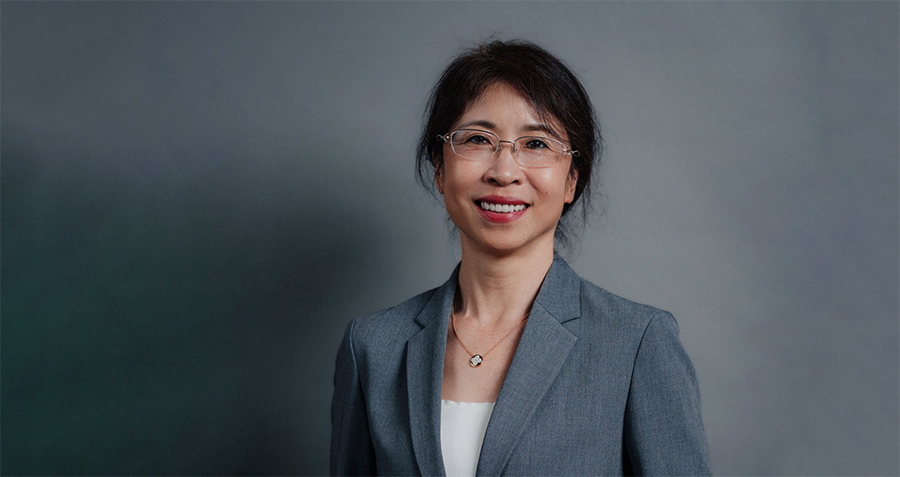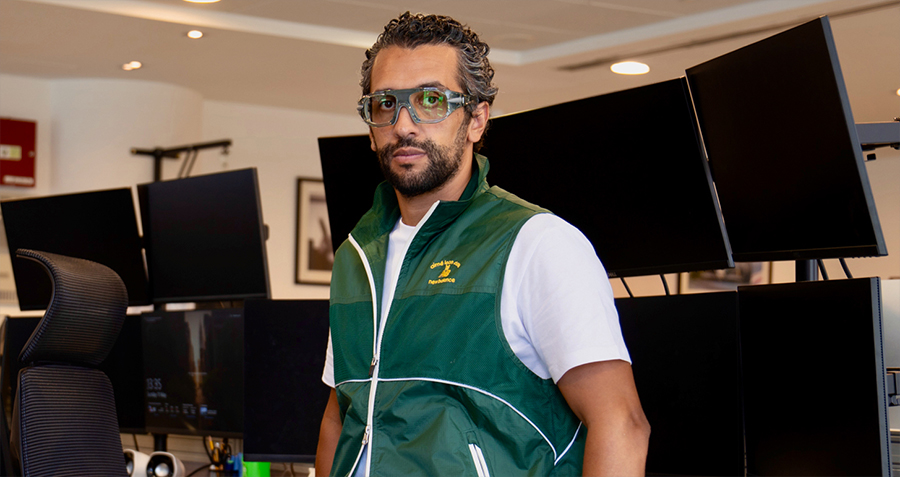Elizabeth Economy, CV Starr Senior Fellow and Director for Asia Studies at the Council on Foreign Relations, explains how Xi Jinping’s presidency is transforming China
The era of Deng Xiaoping is over in China. We are now living in a new historical epoch: the era of Xi Jinping. That is the message of The Third Revolution, the new book by renowned China scholar Dr. Elizabeth Economy.
This view is far from controversial within China; in fact, it is official party doctrine. But the fact that an academic of Dr. Economy’s standing is calling time on Dengism is significant. Over her career, she has proven a remarkably clear-sighted forecaster of where China is heading, most notably in her 2004 book The River Runs Black, which highlighted the enormous cost of China’s economic degradation years before the government was willing fully to face up to it.
In this interview, she explains why China analysts need to develop a new understanding of China’s development trajectory for the Xi era.
Q. The Third Revolution argues that Xi Jinping’s presidency represents a clear break from the eras of Mao Zedong and Deng Xiaoping. Why did China’s leaders consider a third revolution to be necessary when Xi became president in 2013?
A. In part, there was a sense after the Hu [Jintao] and Wen [Jiabao] decade [2003-2012] that there was the need to shake things up a bit. For some, that period had become a “lost decade,” despite the fact that there had been significant economic achievements. There was a sense that China had failed to capitalize on all its economic achievements.
In addition, there was an effort to rectify all the imbalances that had emerged over the 30 years of go-go economic growth under Deng Xiaoping. You had growing inequality, dramatically increasing levels of pollution, an increasingly noisy civil society and, of course, endemic corruption. This was not only corruption at the highest level that spread throughout the party, but also everyday corruption that really affected people’s lives. And so, I think there was a sense of rot setting in at the core of the country even as it appeared to be rising globally.
Q. You call the Chinese leadership’s new policy direction “reform without opening-up.” Could you unpack what you mean by that term?
A. The Deng era became known for its collective decision making; its opening-up in terms of beginning to open the Chinese economy to market forces; the blossoming of China’s civil society; and its welcoming of outside influences, including both foreign capital and foreign ideas.
Xi Jinping has largely upended that process. His approach is a return to a single leader-led state, limiting foreign influences in the country—for example, by introducing a law on the management of foreign non-governmental organizations.
You also have Made in China 2025, which constricts the ability of foreign actors to compete with Chinese companies on a level playing field in a number of cutting-edge technology areas. Moreover, there is a drumbeat of warnings from media and other sources about “hostile foreign forces” that are committed to containing the rise of China.
In addition, there is a much greater penetration of the party into Chinese society and the economy. Under Xi Jinping, you can see this through the social credit system, the reluctance to diminish the role of state-owned enterprises (SOEs), as well as the enhanced role of party committees, not only within SOEs but also within private enterprises and joint ventures. So, in essence, it’s a 180-degree reversal of the Deng-era reforms.
Q. China’s top leaders have been calling for a new wave of opening-up, particularly in industries like finance, in recent weeks. Do you expect these calls to lead to significant reforms?
A. It’s difficult to tell what the impact of any single step may be in terms of opening the Chinese economy to a greater foreign role. What we’ve seen in the past is that even when China does permit a new step, such as allowing foreign credit rating agencies to come into the country, the government will often put in place restrictions that then make it difficult for those companies to do their jobs. For example, the agencies will have to adopt Chinese standards, which means they won’t be rating the companies in the same fashion as they would outside China.
So, my concern is how are regulations implemented and what is the pace of the implementation. We have heard for many years about significant opening in the financial sector and about increased intellectual property rights protections, but we have failed to see much real change.
Q. Xi came to power promising significant economic reform, and many in the West interpreted that as meaning market reform. Was that a misjudgment?
A. If you look at the documents that came out after the Third Plenum of the 18th Party Congress [2013], which was the moment Xi Jinping set out his economic reform agenda, you find that while there were a number of statements that referred to an enhanced role for the market—making the market a “decisive” force—there were also an equal number that highlighted the continuation of the commanding role of the state in the Chinese economy.
I think there were two things happening. First, there is a group of Chinese reformers that want to move forward on more aggressive economic reform, and they used the Third Plenum as an opportunity to advance a number of these ideas. And in the West in particular, there was a lot of excitement and enthusiasm, not only because of what people saw in the documents, but also because they know a lot of these Chinese economic reformers personally and believed that they had the upper hand in the process.
But there was a misreading in the sense that people simply ignored the other half of the document, the element that stressed the continuing role for the state in the economy. And they also underestimated the degree to which Xi Jinping wants to control the levers of political and economic development in the country.
There may also have been an evolution in the thinking of Xi Jinping, perhaps due to the stock market crash [in 2015], that caused him to rethink his commitment to economic reform. Certainly, there’s been no sign from Xi Jinping himself that he is an aggressive economic reformer. He appears to believe that he needs to be able to direct the Chinese economy and doesn’t want the economy to be at the mercy of the market.
Q. Some analysts argue that the anti-corruption campaign is in part aimed at unpicking entrenched vested interests to allow the central government to force through reforms that pare back the power of the state sector. What is your view on this?
A. I see no evidence that that is the case. I think the “vested interests” claim is at this point a tired argument. Xi Jinping has been in power for five years. He has managed transformational change on a number of fronts. The anti-corruption effort has effectively punished a number of very senior officials—economic and political—and I think it’s been systematic and targeted.
So, at this point there’s no reason to say that his design is to pare back the state sector. He’s had all of the tools at his disposal, and if Xi wants to get something done, he gets it done. So, regarding “vested interests,” I think he’s pushed back and continues to push back on corruption, but that doesn’t mean that there’s going to be a paring back of the state sector.
Q. Xi has said that he wants China’s top SOEs to become “better, stronger and bigger.” What are the implications of that policy?
A. Both on the domestic front and in terms of foreign policy, there is unlikely to be a big change in the role of SOEs in the economy during Xi’s tenure. He wants the SOEs at home because they’re important for employment, and he can roll them forward or backward depending on the needs of the party.
In the international sphere, of course, the SOEs are essential to the Belt and Road Initiative. They offer China an enormous advantage in terms of doing business abroad, because they can be—not 100%, but to a large extent—instructed to undertake projects that are not going to be money-makers but have a broader strategic purpose. Very few other countries have that capability.
Q. There is an ongoing debate about whether China can fit into the liberal global order in its current form due to its economic system. Where do you stand on this issue?
A. I think China doesn’t fit into the liberal global order because it is not a liberal state. It doesn’t have a market economy; it doesn’t have a democratic political system; and it’s increasingly trying to use its growing power to shape international norms in ways that benefit its values and priorities. It’s not surprising, because China is a big power now. It is the world’s second-largest economy, the largest trading country, and has the world’s largest standing army.
But this doesn’t mean that China is trying to upend every element of the international system. There are areas where China can largely work within and take advantage of international norms where they largely suit China’s interests. For example, that’s how it’s been playing it in the Arctic. It’s important to understand that in different parts of global governance China behaves differently, and it’s just a matter of whether the norms serve China’s interests or not.
Q. You argue that Western countries will need to introduce protective policies, such as trade tariffs and investment restrictions, in response to China’s rise. Why is that?
A. I say that we need to try to work with China and that there are still other opportunities to engage with China. But in terms of pushing back and adopting policies regarding reciprocity, which traditionally the US has not wanted to do because we believed it’s lose-lose, I think we’ve arrived at a point where China is simply too large economically and politically to allow illiberal practices to expand and exert greater influence globally, because it undermines those same principles by which much of the rest of world is operating. You have to push back.
The hope in pushing back is that to some extent the pushback will empower liberal reformers in China, because if you’re denying China access to the advantages it wants to have inside the system, it may force a rethink within China about the way it does business. Without that kind of pushback, why would China rethink the way it does business when it’s getting all the advantages of the system and paying little of the price?
Q. You state in the book that the large role the state plays in promoting innovation in China produces a number of side effects. Could you explain your thinking on this?
A. I try to distinguish between innovation and invention. China’s very good at innovation, but not so good at invention. And one of the reasons that it struggles more with invention has to do with a lack of the soft infrastructure needed, such as the educational system and access to global reservoirs of knowledge. There’s also the priority placed on the number of papers published or political considerations when selecting people for promotion. You end up with a lot of excess capacity and it’s harder to distinguish the great ideas from the good or even the poor.
On the other hand, China has the strategic vision to push through when countries that are driven by market forces will often fall short or stop. While you end up with top quality through the ruthless competition that comes from the market, the ability of China to sustain and persevere brings its own type of rewards. In the electric vehicle market (see page 53), for example, China now boasts the largest market and the largest manufacturing capacity. The point I make at the end of the innovation chapter is that the US may have Tesla, but China is going to have everything else. And China will have its own Tesla, its own top-quality brand; it might just take it longer to get there.




















